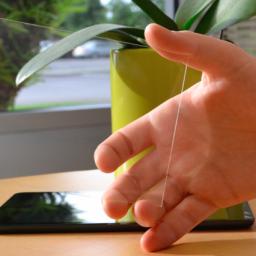Transparent solar cells that could power skyscrapers
 Research has boosted solar panel efficiency over time. But some scientists argue that to truly take advantage of the sun's power, we also need to expand the amount of real estate that can be outfitted with solar, by making cells that are nearly or entirely see-through, i-e transparent cells.
Research has boosted solar panel efficiency over time. But some scientists argue that to truly take advantage of the sun's power, we also need to expand the amount of real estate that can be outfitted with solar, by making cells that are nearly or entirely see-through, i-e transparent cells.A Silicon Valley start-up named "Ubiquitous Energy" has succeeded in creating such transparent solar cells. ClearView is a transparent solar cell that can coat any surface, including displays and windows, to harvest ambient light and generate electricity. Ubiquitous Energy has redesigned the solar cell to selectively transmit light visible to the human eye while absorbing only the ultraviolet and infrared light and converting it into electricity.
Read more from...
That doesn't seem to mesh with their goal of completely eliminating the need for batteries in small consumer gadgets and even smart phones, as LED lighting doesn't emit ultraviolet or infrared, and there isn't always a window nearby. Still a potentially revolutionary technology in other applications, but unfortunately it's in the very, very early stages of development.
http://www.digitaltrends.com/cool-tech/ubiquitous-energy-transparent-solar-power-timeline/
"Doesn't convert or even block the peak of the spectrum" is a massive handicap for a solar panel. The panels designed without that restriction will always be vastly cheaper per watt.
Why would you use solar panels at high latitude? That's another intentional handicap. Put them where the sun actually shines, maybe?
The panels themselves might last for a long time, although we don't exactly have the manufacturing data to back that up. But even if they do, there's casing and transformers and grid connections and mechanical mounts, all of which break and need maintenance. If you are on a roof, that's fine. If you are on the side of a skyscraper, it's more expensive.
There are plenty of southern population centers to supply with cheap, dumb, efficient, boring solar panels. Let's do that